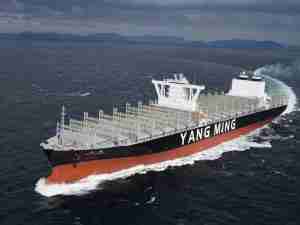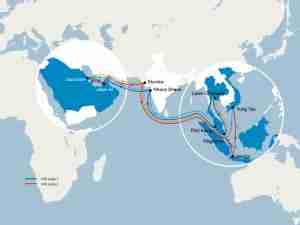Deliveries of new bulkers ordered before global turmoil in 2008 have been weighing on the freight market even as a record large U.S. soybean crop and the third-largest corn crop come off the fields and head to destinations across the world.
"Regardless of what is happening immediately, the grain trades are exercising an increasing influence on the short-term direction of freight rates," Peter Kerr-Dineen told Reuters in an interview.
The broker, who gave a presentation at the Global Grain conference in Geneva earlier this week, said grains shipments were affecting the relative prices of panamaxes versus capesizes. Grains are mainly shipped in panamax vessels.
Previously capesizes had fetched higher average daily rates than panamaxes based on their larger sizes.
"Through to 2008, there was an almost total, an incredibly strong correlation (between capesize and panamax markets). In 2009 and so far this year, it's bust. There have been periods when they have even moved in opposite directions," he said.
"This, I think, is a sea change in the freight market."
Price Support
Kerr-Dineen pointed to soybeans as the grains having the highest impact on the freight market because of the strong correlation with the seasonal demand for panamax cargoes in the Pacific when Asia imports U.S., Argentine or Brazil soybeans.
"There is a huge correlation between the rise and fall in panamax rates and monthly shipments of soybeans. And this is a major change," he said, stressing however that the overall yearly volume of grain trade was not showing a significant rise.
"When you look at the number of panamax fixtures in the Pacific, we've got a tripling of grain fixing going on in the spot market in the East but no apparent trade growth."
This meant grain traders would need to take a more strategic approach, taking account of seasonal prices when covering cargoes, he said.
"I'm not saying and in my view it is unlikely that what we see from the grain markets can buck the cyclical trend, but on an intra-year basis it is likely to become much influential than it's been before," Kerr-Dineen said.
"Intra-year volatility in the grain trade because of the seasonality is going to have more and more impact."
This impact will not be sufficient to support the market in the coming year, still pressured by vessel oversupply, he said.
"But beyond 2011 we would say that it could actually support prices, when the overload of fleet will have been digested, which we think will happen much sooner than people expect," he said. (Reuters)












